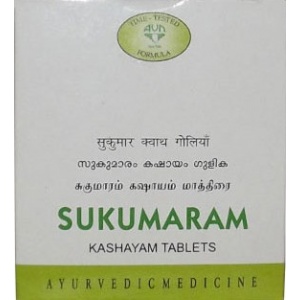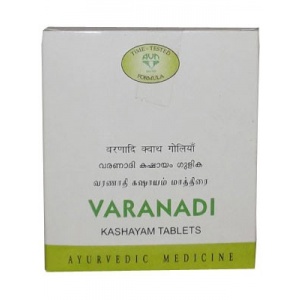Endometriosis
Showing all 4 results
Endometriosis is a painful condition, in which cells of the inner uterine lining (endometrium) grows outside of your uterus.
What is Endometriosis?
What are the symptoms of Endometriosis?
Endometriosis causes menstrual cramps, sometimes severe, and may worsen over time. Other symptoms may include:
Chronic lower back pain
Intestinal pain and discomfort. Pain during bowel movements
Pelvic Pain
Spotting or bleeding between periods
Pain or discomfort during sexual intercourse
Excessive bleeding (menorrhagia)
Infertility
Some women may also experience other, secondary symptoms such as nausea, headache, constipation and bloating, usually during menstruation. Often times, endometriosis may occur with mild, or devoid of symptoms (in about 10-50% women) making it hard to diagnose. It generally occurs, between the ages of 25-40. It would be difficult to occur in post-menopausal woman since progesterone levels drop after menopause.
What Causes Endometriosis?
There is no one exact cause for endometriosis. There are a few theories, one or more of which may be true. The most commonly believed theory is Retrograde Menstruation
Retrograde Menstruation:This theory states that endometrial tissue is displaced due to backward menstrual flow and deposited in unusual locations.
Genetics: Although Endometriosis can affect women of all ethnicities, it is more prevalent in some over others. African Caribbean women, for example exhibit endometriosis very rarely, whereas it is a lot more prominent in Asian women. This is suggestive of the fact that there are certain genes that are selective of the causative effects of endometriosis, and this could be passed down hereditarily.
Metaplasia: Most somatic cells have an ability to change from one cell type to another. This ability is called Metaplasia. It helps during growth and development stage, and also for recovery and repair. Some scientists believe that Metaplasia may be responsible for endometrial cells to form outside the uterine area. Of course, the exact cause or factor that triggers this abnormal (coelomic) metaplasia is unknown but could possibly be attributed to a defect in the cells internal mechanism.
Hormonal Imbalances: An imbalance in female hormones, especially excessive estrogen has been attributed to be responsible for triggering endometriosis. The imbalance could be due to the body’s own fluctuations, or a result of another pertinent problem or condition. Either way, hormonal fluctuations in part have been found to be responsible for triggering endometriosis.
Environmental Factors: Certain Toxins (such as dioxins ) when present in large enough amounts in the body cause dysfunctions in the body that trigger mechanisms that lead to endometriosis. Other toxic build ups may also taper with your body’s natural flow, and cause disturbances in your hormones lymphatic systems, energy flow, etc.
Blood or Lymph: Although it is difficult to assert how, sometimes endometrial cells enter the blood stream and get carried in blood or lymph to other parts of the body.
Immune System: A strong and functional immune systems, keeps malfunctions that lead to endometriosis in check. Endometriosis could also have an auto-immune component
While one or more of these factors might be responsible, remember it is not entirely improbable that the cause could vary from person to person and case to case. The best way to determine the exact causality is by consulting with a doctor, getting the recommended tests done and also elf examining yourself, or changes in your lifestyle, diet patterns, etc.
How is Endometriosis Treated?
Treatment options for Endometriosis vary from case to case, depending on the severity, causality, age and your need/desire to conceive. Some of the conventional treatments for endometriosis include:
Pain Management: If the pain is mild, OTC drugs such as ibuprofen or Tylenol seem to suffice. For more severe pains, the doctor may recommend NSAIDs.
Treatment: Hormone therapies and anti-gonadotropin drugs that alter the production or secretion of certain female hormones such as progesterone or estrogen. Anti-gonadotropins block ovarian stimulating hormones, stopping the ovaries from producing estrogen. Since estrogen is responsible for perpetuating the growth of endometrial tissue, this treatment is effective in regressing further growth, but could also affect normal functioning of the ovaries and/or the uterine walls. Also, lowered estrogen levels could lead to mimicking menopause-like symptoms, such as hot flashes. If you do experience such symptoms, talk to your doctor immediately and stop the treatment, safely.
Birth control (or contraceptive) pills are known to reduce estrogen levels and put you at a lowered risk for endometriosis. Although Birth control pills have not been licensed by the FDA to be prescribed for Endometriosis, a lot of women do find relief by using them to subside the symptoms
Surgery: If hormone therapies do not seem to help, or if your condition is severe or prolerific, your health practitioner might recommend a surgical procedure. This could be of two types: Laproscopic , in which the entire mass of overgrown tissue is removed, without affecting the reproductive organs; or Hysterectomy, in which the entire Uterus, and maybe even the ovaries are removed. This should only be a last resort, and if you do not plan to conceive in the future.
Is there a natural or alternative remedy for Endometriosis?
According to Ayurvedic principles, there are several root factors that could be responsible for triggering Endometriosis; including mental, emotional or psycho-somatic disturbances, that could affect the flow and ebb of your energy systems and cause the symptoms, possibly via the hormonal axis. In Ayureda, an ailment is essentially diagnosed based on which one of the doshas (Energy Systems) are vitiated.
Endometriosis is believed to be a Vata (Wind Energy) disorder. The block in the Flow of the wind energy in your body, causes accumulation, and the blockage results in a periventilated flow, which is what further causes retrograde menstruation. At VedHerbs, our Doctors first diagnose and assess the correct root cause and accordingly suggest an appropriate line of treatment. Our Endometriosis Kit includes Ayurvedic herbs that help rebalance your energy meridians and also restore your reproductive organs back to normalcy. The Kit also includes homeopathic tinctures that prevent estrogen secretion from the abnormal tissue, instead of blocking ovarian secretions so as to avoid any further issues with hormonal balance. The tincture also contains immunomodulating herb essences that help get your immune system back in balance. If you are experiencing extreme Pain and abnormalities in your menstrual cycle, especially digestive issues or intestinal pain, care should be taken during the treatment of rebalancing of Vata flow, to not upset the Pitta (Fire energy). Since endometriosis is a complicated condition, it is advisable to first speak with a doctor before beginning any new treatment. You can log on and chat with one of our Doctors (Ayurveda, homeopathy and Naturopathy), or email us at doctor@vedherbs.com to set up a free consultation.




